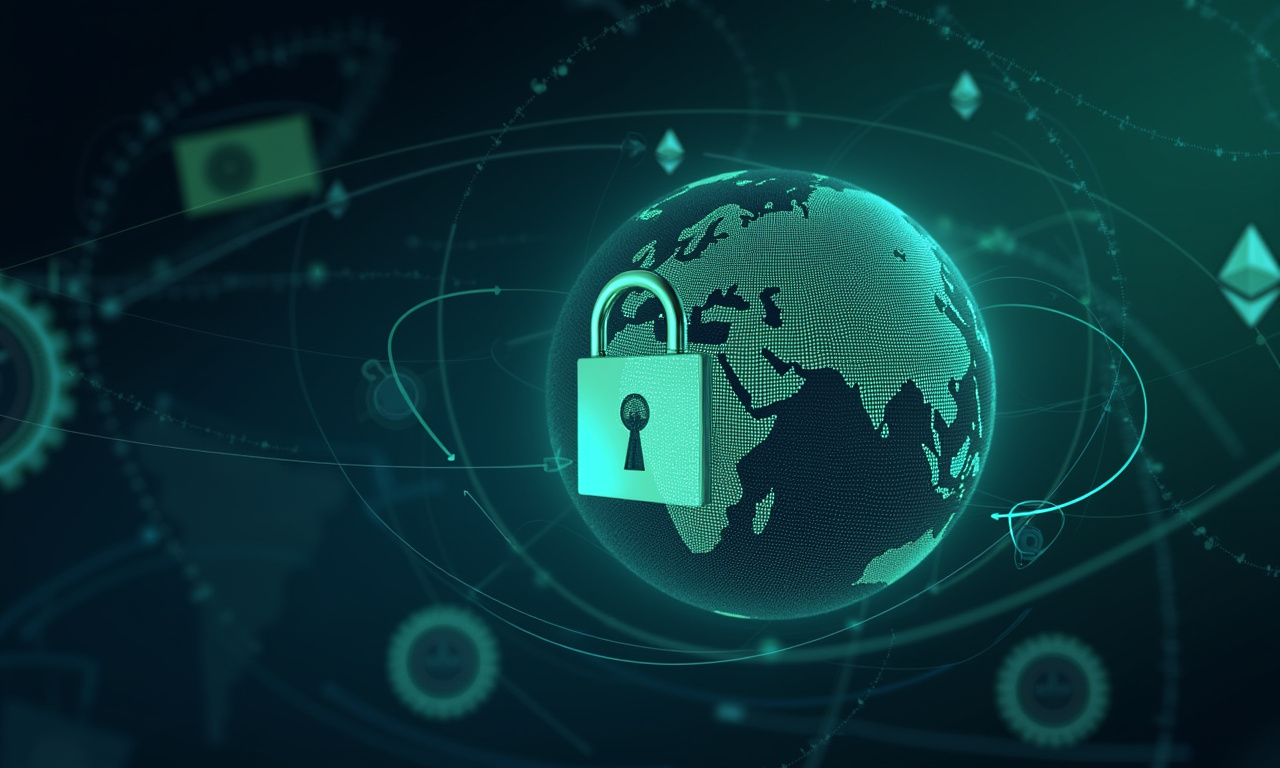The crypto landscape, despite its potential to offer more decentralization and financial freedom, has similarly developed into an ecosystem rife with bad actors. Almost overnight, North Korea became one of the largest state-sponsors of crypto-connected cybercrime. To evade international sanctions and fund their weapons programs, they sometimes resort to stealing funds. With the upcoming G7 summit in Canada, discussions are likely to focus on addressing these escalating threats and protecting the broader crypto market. This article explains what’s at stake, what it means, and how it may affect you.
Understanding the Cyber Threat Landscape
North Korea’s engagement with cybercrime, particularly in the form of crypto heists, has become downright sinister. Lest one think such thievery isn’t lucrative, in 2024 North Korean hackers stole an unbelievable $1.34 billion. According to blockchain analytics firm Chainalysis, they achieved that through 47 different hacks. These are not just opportunistic attacks, but rather sophisticated, well-planned operations aimed at producing revenue for the cut-off regime.
The Role of Cryptocurrencies in Cybercrime
Cryptocurrencies provide a compelling suite of benefits for cybercriminals such as those sponsored by the North Korean regime. First, many cryptocurrencies are pseudo-anonymous, making tracking stolen assets cumbersome. This is complicated by the ease of transferring funds across borders one way or another. The decentralized nature of the crypto market makes it impossible to eliminate every single point of failure, as we have already learned. This absence of oversight creates loopholes that can then be exploited through transactions.
North Korean cyber actors have increased their hacking tactics to steal cryptocurrency. They target weaknesses in DeFi protocols and blockchain bridges, use complicated social engineering projects, and penetrate crypto startups under the guise of developers. They’ve even been able to send themselves as insider threats to crypto companies from which Treasury alleges that they’ve stolen crypto, US Treasury has said.
Case Studies of Rogue Nations Involved
North Korea isn’t the only country taking advantage of crypto for illegal activities. Its size and sophistication makes it unique. Iran and Russia are well-known examples of using cryptocurrencies to evade sanctions and fund other illicit activities. These countries often target crypto exchanges, DeFi platforms, and individual investors, employing tactics ranging from phishing attacks to malware deployment.
Among these, the Lazarus Group, a North Korea-backed hacker organization has been especially infamous. In early February 2025, they purportedly masterminded a $1.4 billion hack on the Bybit exchange. This vivid, instant-death style attack became the biggest ever attack against any centralized exchange. These incidents underscore the pressing need for improved cybersecurity practices and global collaboration to address these malign threats.
G7's Initiative for a Global Response
Considering the gravity of the circumstances, it is time for the G7 to act. The upcoming summit in Canada will likely feature discussions on how to counter North Korea's crypto heists and protect the integrity of the international crypto market. The objective is twofold: neutralize the effectiveness of North Korean operations and safeguard the broader crypto ecosystem.
Proposed Strategies for International Cooperation
These could include:
- Enhanced information sharing: Real-time information sharing between platforms, states, and intelligence agencies is crucial for identifying and responding to cyber threats. The US, Japan, and South Korea have already taken steps in this direction by issuing joint alerts and emphasizing the need for collaborative efforts.
- Sanctions and asset freezing: Imposing sanctions on individuals and entities involved in crypto-related cybercrime can help disrupt their operations and limit their access to financial resources. Asset freezing measures can also prevent stolen funds from being laundered or used to finance illicit activities.
- Capacity building: Providing technical assistance and training to countries with less developed cybersecurity infrastructure can help strengthen their ability to detect and respond to cyber threats. This could involve sharing best practices, providing access to advanced security tools, and conducting joint exercises.
Importance of Unified Regulations
The global nature of crypto and the fact that regulations vary broadly — if at all — across jurisdictions present one of the largest hurdles to fighting emerging crypto-related cybercrime. This can greatly enable criminals to take advantage of regulatory arbitrage, shifting their funds and operations to counties with fewer or weaker enforcement mechanisms. 2251, the G7 can lead an important global effort to push for the adoption of similar regulatory standards across the globe. This includes instituting know-your-customer (KYC) and anti-money laundering (AML) requirements.
Unified federal regulations would go a long way to closing loopholes, increasing transparency, and making it harder for cybercriminals to freely act without consequences. This would shield the crypto market from nefarious actors. It would similarly help to establish more trust and confidence among investors.
Challenges Facing the Crypto Ecosystem
Despite their potential advantages, the crypto ecosystem suffers from distinct shortcomings that leave it open to cybercrime. These factors range from technical vulnerabilities, regulatory uncertainty, and lack of user knowledge on security best practices. Tackling these challenges is crucial for unlocking the promise of cryptocurrencies while reducing the dangers associated with them.
Common Misconceptions About Blockchain Security
Another misconception is that blockchain technology is secure by design. Though blockchain provides specific security benefits, including immutability and cryptographic shielding, it isn’t impervious to attacks. These can appear in smart contracts, wallets, and exchanges where they can be taken advantage of by advanced malicious actors.
Perhaps smart contract bugs are an obvious example, but it’s what has caused countless DeFi exploits to result in the loss of millions of dollars. Likewise, poor wallet security practices may leak private keys, keeping attackers with the opportunity to take funds. First and foremost, it’s important to understand that blockchain security is only as secure as its weakest link.
Risks Associated with Token Management
Token management is another area of concern. It’s often because users don’t secure their private keys safely or aren’t careful enough to protect their wallets. This leaves them particularly vulnerable to phishing, malware infections and other cybercriminal activities.
Additionally, the creation of spam or harmful tokens is a severe danger. These tokens usually have complex schemes to fool users into transferring money to scam addresses. Equally insidious, they hope to steal your private keys. As always, be extremely careful when dealing with new or unverified tokens, and do your own research to ensure they’re not a scam before sending any assets.
Key Mistakes to Avoid in Crypto Security
Here are some key pitfalls to watch out for:
Overestimating Blockchain's Security Features
As we discussed above, blockchain is not a magic bullet. Don’t think that your money is just automatically secure because they’re on a blockchain. Get ahead of the game by storing your crypto in wallets, not exchanges, creating strong password phrases and always implementing two-factor authentication.
Misunderstanding the Safety of Private Keys
Your private key is your key to the crypto kingdom.…Publicly disclose that you never shared it with anyone. Store it securely, either in a very safe place, like a hardware wallet or in an encrypted file. Losing your private key is akin to losing the deed to your house. You’ll forfeit access to your funds.
Relying Solely on Two-Factor Authentication
We all love two-factor authentication (2FA), but it doesn’t solve the full problem. Hackers are able to get around 2FA with numerous methods, including SIM swapping or phishing attacks. You may want to take advantage of hardware-based 2FA methods, like a YubiKey, for stronger protection.
Neglecting Token Approval Management
Crypto security is a topic that gets glossed over, but it’s incredibly important for protecting against unauthorized access to your funds. Every time you approve a smart contract to spend your tokens, you are giving that smart contract permission. This is what gives the contract access to your wallet. If the smart contract is malicious or has vulnerabilities, it can drain your funds just like that. Regularly monitor your approvals and revoke any token approvals you don’t use anymore.
Failing to Learn from Previous Security Breaches
Realize that the crypto space is still developing, and with it, the threats to your security are always changing. Avoid future scams, hacks, and other vulnerabilities by staying up-to-date on what all of us have learned the hard way. Follow trusted security practitioners, stay informed with industry news, and engage with online communities to get a step up from the latest and greatest.
The G7’s attention to North Korea’s crypto heists should be viewed as a positive, not a negative, by the crypto community. By addressing these threats and promoting greater security and regulation, the G7 can help create a safer and more trustworthy environment for everyone. As an investor, being aware and making the right moves to protect your wealth is more important now than ever before.

Rohan Prasad
Crypto Feature Editor
Rohan Prasad delivers engaging, community-driven stories on crypto events, blending firsthand experience with expert commentary. Known for connecting with people across the ecosystem, he makes complex DeFi happenings accessible and fun. Outside of work, Rohan enjoys indie music and trekking in the Western Ghats.
Related

CR7 & Binance: Blast Off to Fan Engagement with New NFT Drop
The intersection of sports and cryptocurrency still seems to be generating novel methods for athletes to engage with their fan base. As a showcase of this unique collaboration, one great example is the “Forever to the Moon” NFT drop. Cristiano Ronaldo (CR7) joined forces with Binance to design these exhilarating...

Trump's Crypto Plan: GENIUS Act, Bitcoin & Conflict?
The digital asset space is abuzz with speculation after Donald Trump indicated he may be taking a whole new tack on crypto. From executive orders creating Bitcoin reserves to his family’s efforts to introduce new stablecoins, Trump’s impact on crypto is increasing. All of these advances create a number of...

USDC Lands on XRP Ledger: DeFi & Payments Get a HUGE Upgrade!
The XRP Ledger (XRPL) just received a huge endorsement. It now boasts native integration of USD Coin (USDC), the engine stablecoin from Circle that’s overtaken all competitors. Rohan Prasad is an astute observer of the crypto space. He thinks this is not just another listing, but rather a game-changing opportunity...
